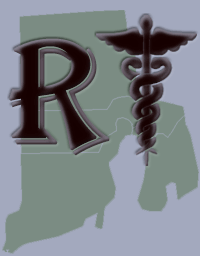Epilepsy & Seizures
Seizures, including epileptic seizures, can be reduced in intensity, and reduced in frequency or prevented altogether, through the use of medical marijuana.
Published research:
Chronic administration of cannabidiol to healthy volunteers and epileptic patients. Pharmacology. 1980;21(3):175-85. Cunha JM, Carlini EA, Pereira AE, Ramos OL, Pimentel C, Gagliardi R, Sanvito WL, Lander N, Mechoulam R. In this controlled study, 4 of the 8 CBD subjects remained almost free of convulsive crises and 3 other patients demonstrated partial improvement.
In phase 1 of the study, 3 mg/kg daily of cannabidiol (CBD) was given for 30 days to 8 health human volunteers. Another 8 volunteers received the same number of identical capsules containing glucose as placebo in a double-blind setting. Neurological and physical examinations, blood and urine analysis, ECG and EEG were performed at weekly intervals. In phase 2 of the study, 15 patients suffering from secondary generalized epilepsy with temporal focus were randomly divided into two groups. Each patient received, in a double-blind procedure, 200-300 mg daily of CBD or placebo. The drugs were administered for along as 4 1/2 months. Clinical and laboratory examinations, EEG and ECG were performed at 15- or 30-day intervals. Throughout the experiment the patients continued to take the antiepileptic drugs prescribed before the experiment, although these drugs no longer controlled the signs of the disease. All patients and volunteers tolerated CBD very well and no signs of toxicity or serious side effects were detected on examination. 4 of the 8 CBD subjects remained almost free of convulsive crises throughout the experiment and 3 other patients demonstrated partial improvement in their clinical condition. CBD was ineffective in 1 patient. The clinical condition of 7 placebo patients remained unchanged whereas the condition of 1 patient clearly improved. The potential use of CBD as an antiepileptic drug and its possible potentiating effect on other antiepileptic drugs are discussed.
Marijuana: an effective antiepileptic treatment in partial epilepsy? A case report and review of the literature. Reviews in Neurological Diseases: Rev Neurol Dis. 2007 Spring;4(2):103-6. Mortati K, Dworetzky B, Devinsky O. Significant improvement of epilepsy with the use of cannabis.
Although more data are needed, animal studies and clinical experience suggest that marijuana or its active constituents may have a place in the treatment of partial epilepsy. Here we present the case of a 45-year-old man with cerebral palsy and epilepsy who showed marked improvement with the use of marijuana. This case supports other anecdotal data suggesting that marijuana use may be a beneficial adjunctive treatment in some patients with epilepsy. Although challenging because of current federal regulations, further studies are needed to examine the role of marijuana in the treatment of this disorder.
Experiences with THC-treatment in children and adolescents. Abstract, IACM 2nd Conference on Cannabinoids in Medicine, September 12-13, 2003, Cologne. Lorenz R. Positive effects of THC in children with severe neurological disorders.
8 patients - children or adolescents aged 3 to 14 years - have been treated with delta-9-THC, dosages ranged from 0.04 mg/kg body weight to 0.14 mg/kg body weight. Conclusion: In severly disabled children and adolescents delta-9-THC-medication can have positive psychotropic effects, influences the degree of spasticity and dystonia and-occasionally-seems to have an anticonvulsant action.
